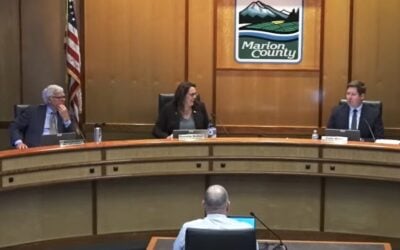Start-up Zinc8 Energy Solutions – formerly known as MGX Renewables – has made a deal to deploy a 100kW/1.5MWh zinc-air battery energy storage system in New York City, with financial support to come from New York State Energy Research and Development Authority (NYSERDA).
Digital Energy Corp, which is a developer of CHP plants, solar PV and microgrid projects based in New York, signed a Deployment Agreement with Vancouver, Canada-headquartered Zinc8, to install the system in Brooklyn.
Enjoy 12 months of exclusive analysis
- Regular insight and analysis of the industry’s biggest developments
- In-depth interviews with the industry’s leading figures
- Annual digital subscription to the PV Tech Power journal
- Discounts on Solar Media’s portfolio of events, in-person and virtual
Hailed as Zinc8’s first private sector agreement, the system is capable of storing energy for up to 15 hours, considerably longer than the 4-6 hour upper limit generally assumed for lithium-ion (although it can do more) and even the 8-10 hour sweet spot claimed by flow batteries (some of which can also do more if needed).
NYSERDA made a call for proposals that led to it contributing CAD600,000 (US$435,264) towards the project’s total CAD2.5 million cost. It’s Zinc8’s second project of 100kW/1.5MWh in New York State, after it was selected by the New York Power Authority (NYPA) in January as winner of an Innovation Challenge.
Customer Digital Energy Corp said it had a pipeline of a possible hundred customer projects that could benefit from being equipped with such a solution with the company’s president and CEO William Cristafaro describing the “Zinc8 system as very promising for integration into our existing and developing customer base of over 100 on-site power plants, solar systems, and microgrids”. Zinc8 and Digital Energy have agree to attempt to refer each other for projects in their respective pipelines for execution under joint proposals.
“The Zinc8 system addresses several critical needs of on-site electric energy storage: Price point economics, system robustness under real-world use, and safety,” Digital Energy Corp’s William Cristafaro said.
A 2019 press release from Zinc8, when still known as MGX Renewables – it still trades on the Canadian exchange under the MGXR ticker and in the US under MGXRF – said its systems are designed to provide power in the range of 20kW to 50MW, with a capacity of between 120kWh and all the way up to 1GWh.
“With the advantage of rechargeable zinc-air flow battery technology, the system can be configured to support a wide range of discharge power, recharge power and duty cycle requirements. Since the energy storage capacity of the system is determined only by the size of the zinc storage tank, a very cost-effective and scalable solution now exists as an alternative to the fixed power/energy ratio of the lithium ion battery,” the June 2019 release said.
Several companies, including start-ups still in stealth mode that Energy-Storage.news has heard about, are working to come up with low-cost, abundant material-reliant zinc batteries, with current frontrunner probably EOS Energy Storage. Last year, the company struck up a joint venture (JV) that includes manufacturing, with nuclear equipment and decommissioning specialist Holtec, entitled HI-POWER.






